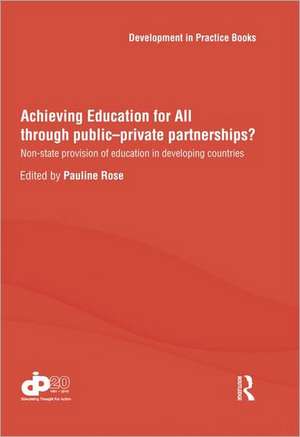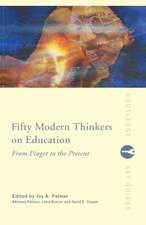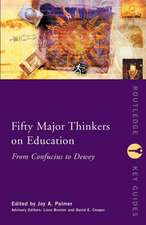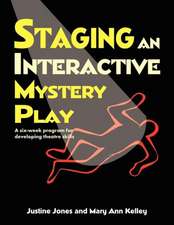Achieving Education for All through Public–Private Partnerships?: Non-State Provision of Education in Developing Countries: Development in Practice Books
Editat de Pauline Roseen Limba Engleză Hardback – 6 oct 2010
Even where the ultimate aim of both non-state providers and the state is to provide education of acceptable quality to all children, this book provides evidence from diverse contexts across Africa, South Asia, and Latin America to highlight the challenges in them partnering to achieve this.
This book was published as a special issue of Development in Practice.
Preț: 497.26 lei
Preț vechi: 673.33 lei
-26% Nou
Puncte Express: 746
Preț estimativ în valută:
95.16€ • 98.98$ • 78.56£
95.16€ • 98.98$ • 78.56£
Carte tipărită la comandă
Livrare economică 14-28 aprilie
Preluare comenzi: 021 569.72.76
Specificații
ISBN-13: 9780415583718
ISBN-10: 0415583713
Pagini: 166
Dimensiuni: 174 x 246 x 15 mm
Greutate: 0.47 kg
Ediția:1
Editura: Taylor & Francis
Colecția Routledge
Seria Development in Practice Books
Locul publicării:Oxford, United Kingdom
ISBN-10: 0415583713
Pagini: 166
Dimensiuni: 174 x 246 x 15 mm
Greutate: 0.47 kg
Ediția:1
Editura: Taylor & Francis
Colecția Routledge
Seria Development in Practice Books
Locul publicării:Oxford, United Kingdom
Public țintă
PostgraduateCuprins
1. Introduction: Achieving Education for All through public–private partnerships? Pauline Rose 2. Civil society, basic education, and sector-wide aid: insights from Sub-Saharan Africa Karen Mundy, with Megan Haggerty, Malini Sivasubramaniam, Suzanne Cherry, and Richard Maclure 3. Marching to different rhythms: international NGO collaboration with the state in Tanzania Sheila Aikman 4. The roles of non-state providers in ten complementary education programmes Joseph DeStefano and Audrey-marie Schuh Moore 5. Reaching the underserved with complementary education: lessons from Ghana’s state and non-state sectors Leslie Casely-Hayford and Ash Hartwell 6. Public–private partnerships or privatisation? Questioning the state’s role in education in India Prachi Srivastava 7. Madrasas as partners in education provision: the South Asian experience Masooda Bano 8. Struggles for memory and social-justice education in Latin America Lauren Ila Jones and Carlos Alberto Torres RESEARCH ROUND-UP 9. Collaboration in delivering education: relations between governments and NGOs in South Asia Richard Batley and Pauline Rose VIEWPOINT 10. Working effectively with non-state actors to deliver education in fragile states Chris Berry 11. Non-state providers, the state, and health in post-conflict fragile states Stephen Commins 12. Free primary education still excludes the poorest of the poor in urban Kenya Moses Oketch and Moses Ngware 13. The evolution of NGO–government relations in education: ActionAid 1972–2009 David Archer
Descriere
The book shows that the trend towards developing partnerships between non-state providers and the state has resulted in both benefits and tensions for achieving education millennium development goals.
It was published as a special issue of Development in Practice.
It was published as a special issue of Development in Practice.
















